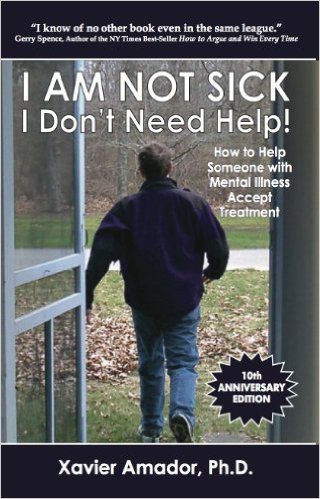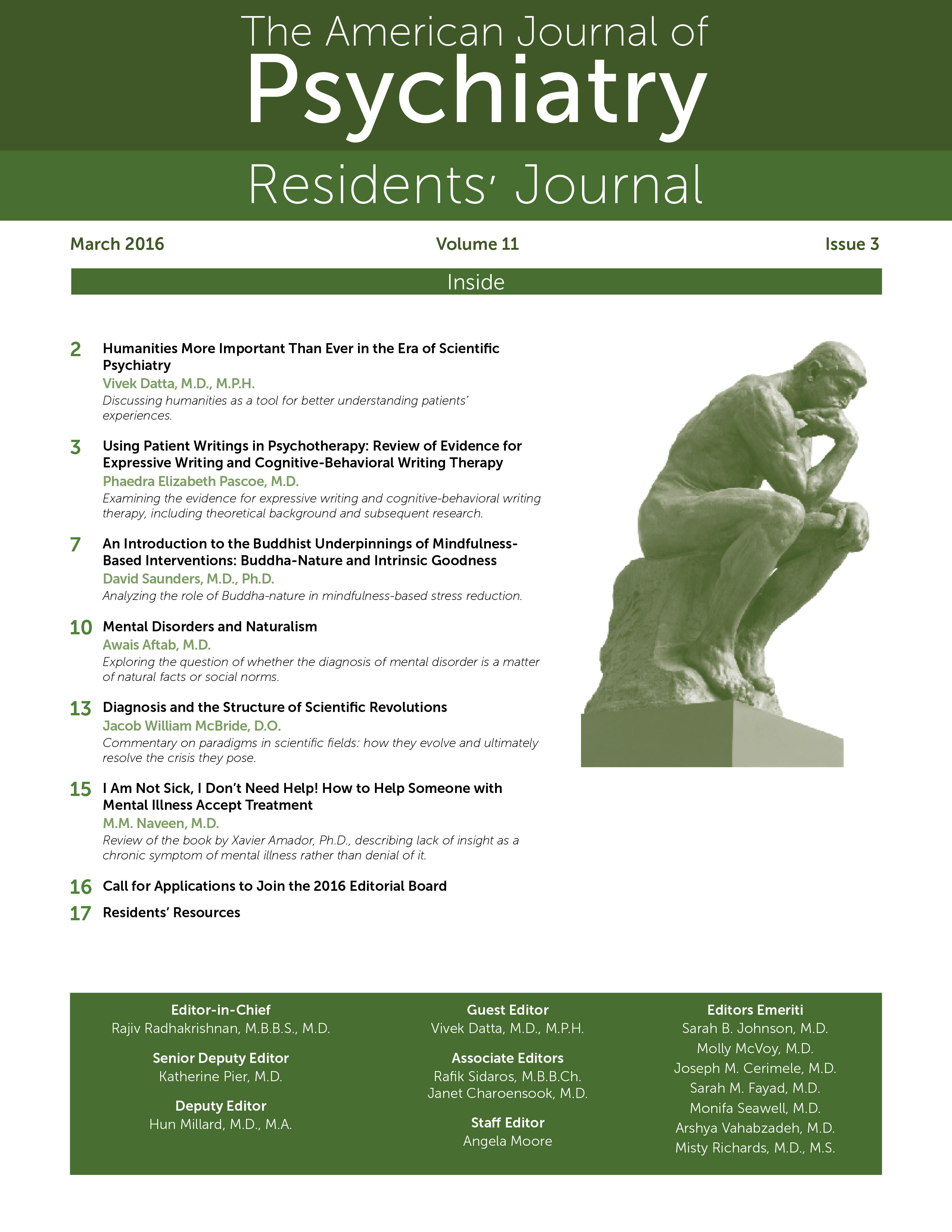Renowned clinical psychologist and founder of the LEAP Institute, Dr. Xavier Amador has written eight captivating books filled with masterful insights. For the busy psychiatry resident who can only choose one, my recommendation is I Am Not Sick, I Don’t Need Help! This easy read is packed with useful tips and provocative ideas. The 10th anniversary edition of this international best-seller was released in 2012 and includes six new chapters and the latest research on anosognosia.
Anosognosia refers to a “lack of insight.” Functional imaging studies demonstrate a correlation between frontal lobe deficits and anosognosia, and research has found neuroanatomical abnormalities in up to 15 subregions of the frontal lobe in chronic schizophrenia patients with this condition. There is a well-established association between poor insight and negative symptoms of schizophrenia; however, Dr. Amador posits that links also exist between poor insight and positive symptoms.
In this book, Dr. Amador takes great effort in emphasizing how a lack of insight is not due to denial, defensiveness, or stubbornness, but is rather a symptom of chronic mental illness. He clarifies several myths, such as insight leads to demoralization, depression, and suicide. He encourages readers to avoid arguing with a person who lacks insight and notes that “a cycle of confrontation and denial always ends in avoidance.”
Throughout the book, Dr. Amador shares principles of LEAP and explains how this effective tool can be used to gain the trust of someone who lacks insight. LEAP stands for Listen, Empathize, Agree, and Partner. The cornerstone of LEAP is reflective listening, and Dr. Amador excellently notes that “if you want someone to seriously consider your point of view, be certain he feels you have seriously considered his” (p. 57). He points out that a common ground exists, even between the most extremely opposing positions and that it is tremendously important to find it. He illustrates the example of a patient who disagrees about the need to take medications but is able to agree to a goal of staying out of the hospital and how consistently taking medications can help to achieve that. Another principle, which relates to LEAP, is called the “three As.” With this, Dr. Amador encourages readers to Apologize for a difference in opinion, to Acknowledge the existence of different perspectives, and to Agree to disagree.
What I found most enjoyable about this book was reading the stories of actual patients. And by far my favorite patient was Henry, Dr. Amador’s older brother who suffers with chronic schizophrenia. Dr. Amador paints an honest picture of how he struggled through the early years of his brother’s illness and the frustration he experienced in dealing with Henry’s lack of insight. It is quite moving to read about how the relationship between these two bothers changed after Dr. Amador began practicing the principles he now preaches to others.
Every budding psychiatrist hopes to one day display a library of books in his office. No such library would be complete without I Am Not Sick, I Don’t Need Help!

